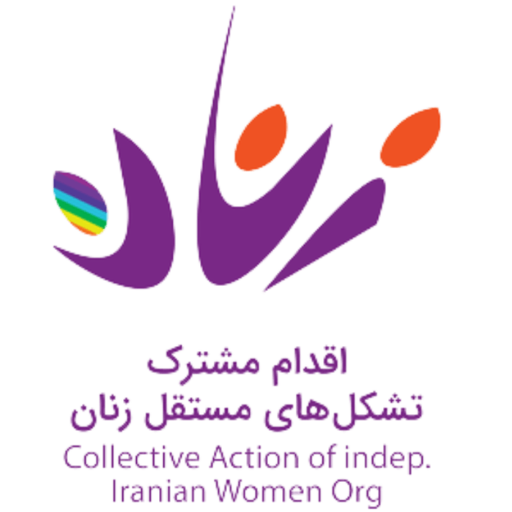As we approach November 25, the International Day for the Elimination of Violence Against Women, we reflect on the long road ahead of us to end all forms of violence against women, both in public and institutionalized settings. This struggle, accompanied by resistance, often comes at a high cost to women and equality advocates.
In Iran, the past year has seen widespread gender-based violence, including sexual assault and brutal acts perpetrated against women opposing mandatory hijab laws and other Islamic regulations. Arrests, torture, rape, and executions have compounded these hardships, alongside issues such as worsening poverty for women, child marriage, school dropouts, child labor, and environmental destruction that disproportionately affect women.
Parliament’s research center has estimated that 900,000 children have dropped out of school, with a majority being girls and Afghan children, whose cases are not even included in official statistics. The mandatory hijab issue persists, with the Islamic Republic continuing its efforts through initiatives like the “Chastity and Hijab Plan” but facing significant resistance from women.
One tragic incident is that of Arzu Khavari, a 16-year-old Afghan girl, who died protesting enforced hijab rules. The systemic sexual and gender-based violence faced by young girls in Iran’s education system reflects deeper issues of gender apartheid. Courageous acts of protest, such as that by Ahoo Daryan, a student who defied university authorities, show that women are not afraid to claim their bodies even at great personal risk.
The number of executions in Iran increased to 538 in the past year, representing a 43% surge, with Iran having the highest rate of female executions globally. The state’s violence against women’s rights activists and political figures has escalated under the pretext of “war threats” and daily arrests. Kurdish political activists like Zizi Peshkhan and Rojin Moradi remain under threat of execution.
Globally, sexual violence, femicides, and the criminalization of abortion have also risen. Last year, Turkey witnessed 403 femicides, while statistics for Iran remain undisclosed. According to reports, cases of honor-based violence in Iran often involve male family members who go unpunished under Sharia law.
The battle against the criminalization of abortion continues, with women facing severe consequences for seeking reproductive healthcare. In Iran, at least 360,000 abortions are performed annually, most of them illegally and with dire consequences, yet no official data exists on the mortality rates due to these restrictions.
In Afghanistan, gender apartheid has confined millions of Afghan women and girls to a life without basic rights. They are banned from education and work and cannot leave home without a male guardian. Public executions, lashings, and stoning for “moral” offenses have been reintroduced. Afghan refugees, even in Iran, are often victims of violence, such as the massacre of 25 Afghan migrants in Saravan.
Women have always been the most affected victims in war zones, subjected to brutal assaults, including rape and sexual slavery. Recent reports highlight widespread sexual violence in Sudan, affecting hundreds of women in just the past few months.
The aftermath of the Israel-Palestine conflict has also had devastating effects on women. The bombardment of Gaza has left thousands dead and many pregnant women vulnerable to hunger and lack of healthcare. The economic and social conditions of women in conflict zones remain dire, with increasing instances of violence and inequality.
The Kurdish struggle in Rojava, led by powerful women’s movements that defeated ISIS, remains under threat from Turkish military aggression. Despite Turkey’s bombardment of civilian areas, the spirit of Kurdish women continues to inspire resistance against authoritarianism.
We, as independent Iranian women’s organizations in the diaspora, stand in solidarity with all movements fighting against sexual and gender-based violence, dictatorship, imperialism, and colonialism. We support the collective struggle for fundamental change, particularly in the Middle East, as our futures are deeply interconnected. Ending violence against women is impossible under the rule of fundamentalist and oppressive systems, including the Islamic Republic.
#Woman_Life_Freedom
November 25, 2024
Association of Iranian Women in Montreal
Collective of Woman Life Freedom – Rome
Dallas Iranian Women Association (DIWA).
Everyday Feminism
Frauen Tribunal – Hannover, Germany
Free Iranian Women’s Association
Gender Equality Committee of Solidarity of Republicans of Iran
IKWRO-Women Rights Organizations.
Iranian Circle of Women for International Networking (ICWIN)
Iranian Women Activist in Exile – Berlin, Germany
Iranian Women Association of Parto, Germany.
Iranian-German women’s association, Cologne, Germany
IWIN Iranian Women In Network
Left Unity of Women
Me Too Movement Iran
Orange County Women Study Group.
Forum of Iranian Women in Vienna
The Organization for Emancipation of Women
Together for Women’s Health Foundation.
Women for Sustainable Freedom & Equality
Zanan Group in Northern California
